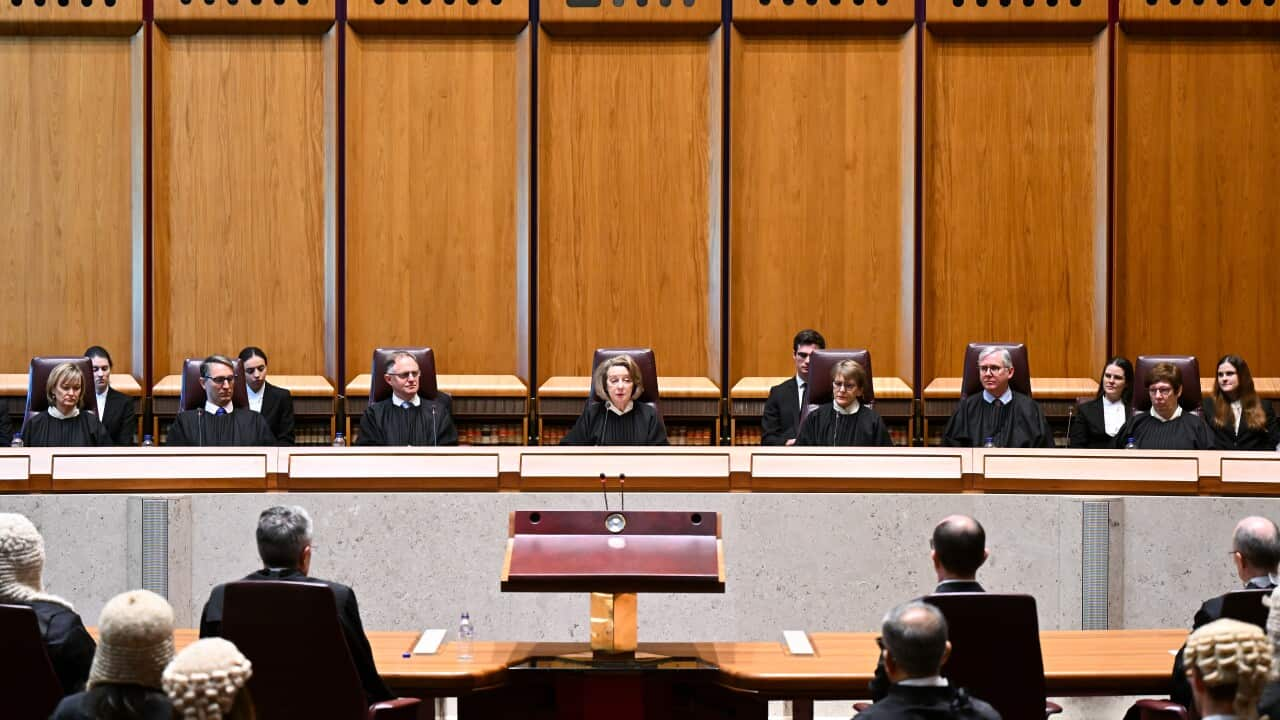Key Points
- A High Court outcome has effectively ruled that judges cannot be sued for making a mistake.
- A man was sentenced to six months jail when a judge wrongly believed another judge had found the man in contempt.
- In their judgment, the judges noted the purpose of immunity is the same for judges of all courts.
The High Court has allowed appeals in a case after a judge was held personally liable for wrongly jailing a man during a divorce case, effectively ruling judges cannot be sued for making a mistake.
The Brisbane man, known by the pseudonym Mr Stradford, sued Federal Circuit Court Judge Salvatore Vasta, who had jailed him for contempt and was later awarded $309,000 compensation.
Judge Vasta's lawyers argued in the High Court last August that an "inferior court" should be afforded no less judicial immunity than a superior court judge.
In a judgment on Wednesday, the High Court allowed appeals by Judge Vasta, the Commonwealth and Queensland.
On the issue of the scope of immunity from, or defence to, civil suit for judges of the Federal Circuit Court, the High Court ruled common law affords the same immunity from civil suit to judges of inferior courts as it does to judges of superior courts.
"Under that common law, judges of Australian courts … are immune from civil suit arising out of acts done in the exercise, or purported exercise, of their judicial function or capacity," the High Court judges said.
"As Judge Vasta purported to perform such a function in convicting and sentencing Mr Stradford, he was not liable to Mr Stradford for false imprisonment."
However, the judges found "the effect of this absolute immunity may be such that a victim of unjust treatment by a judicial officer will be left with no means of obtaining monetary compensation through the courts".
"If that is so, and the unjust treatment has caused harm to the victim, it may be that one or other of the legislative schemes for the making of an ex gratia or "act of grace" payment may compensate the victim."
The judges noted Mr Stradford's time in custody was "distressing".

"He witnessed and was subjected to acts of violence. He experienced suicidal thoughts," the judges wrote.
Mr Stradford's lawyers had told the High Court that arguments against the judge's liability meant "in cases of this kind, victims of even the most egregious torts should have no remedy".
In their judgment, the judges noted the purpose of immunity is the same for judges of all courts.
"That purpose is to facilitate the independent performance of the judicial function free from the spectre of litigation … judicial immunity does not exist for the benefit of individual judges," they found.
In the original case, in August 2018, Judge Vasta ordered Mr Stradford to disclose gambling account statements.
The proceedings were adjourned and, following a brief hearing before another judge, returned to Judge Vasta in December 2018.
Wrongly believing the other judge had already decided Mr Stradford was in contempt, Judge Vasta sentenced the father of two to six months in jail for disobeying orders to provide financial documents.
Mr Stradford appealed, and six days later, Judge Vasta conceded he had erred and ordered his immediate release.
In February 2019, the Full Court of the Family Court overturned the sentence.
Mr Stradford sued Judge Vasta for false imprisonment.
In an August 2023 judgment, Federal Court Justice Michael Wigney awarded compensation, including $50,000 in exemplary damages payable by Judge Vasta "to deter any repetition of such a thoroughly unacceptable abuse of judicial power".
Justice Wigney also found the Commonwealth and Queensland to be vicariously liable for court, police and correctional officers following Judge Vasta's orders.
In allowing the appeals, the High Court set aside Justice Wigney's decision and dismissed Mr Stradford's proceedings.

